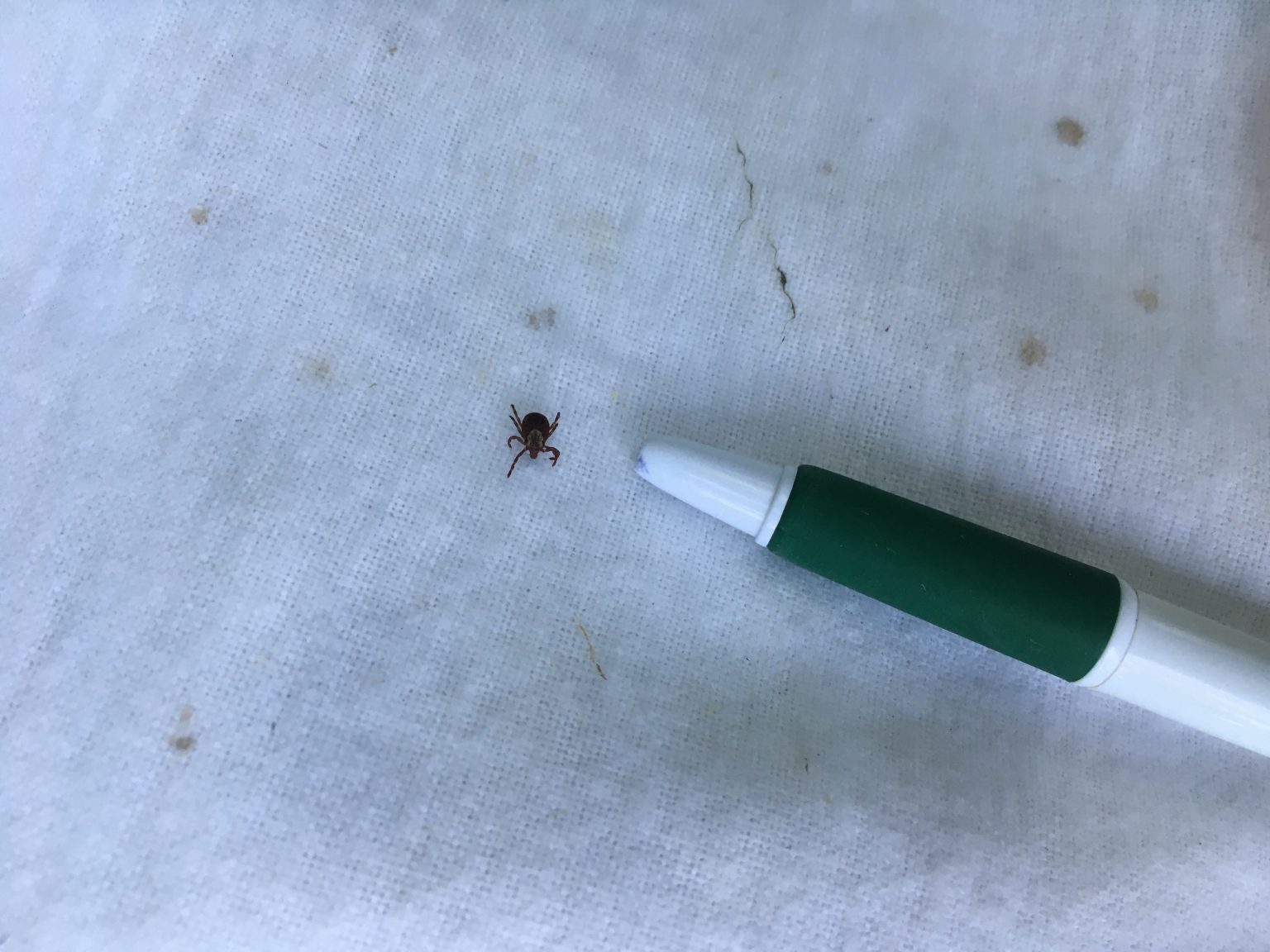TickZoo: The Ultimate Guide To The World Of Ticks And Their Impact On Our Lives
TickZoo is a term that has been gaining traction in recent years, especially as the world becomes more aware of the dangers posed by ticks and the diseases they carry. Imagine a zoo filled not with majestic lions or playful monkeys, but with tiny creatures that can cause big problems. That's what TickZoo is all about. It's a fascinating yet alarming look into the world of ticks, their behavior, and the impact they have on our health and environment.
Now, you might be wondering why you should care about ticks. Well, let me tell you, these little critters are more than just a nuisance. They're tiny time bombs waiting to explode, carrying diseases that can seriously mess with your life. Whether you're an outdoor enthusiast, a pet owner, or just someone who enjoys a walk in the park, understanding TickZoo is crucial for your well-being.
So, buckle up because we're diving deep into the world of TickZoo. We'll explore everything from the basics of what ticks are to the diseases they spread and how you can protect yourself. By the end of this article, you'll be a TickZoo expert, ready to face these tiny pests with confidence. Let's get started!
- Vegamovies 4k Your Ultimate Streaming Destination For Highquality Entertainment
- Lara Rose Leak Unveiling The Truth And Understanding The Impact
What Exactly is TickZoo?
TickZoo, in its simplest form, is the collective term used to describe the vast array of ticks and the diseases they carry. It's like a zoo, but instead of cute animals, you've got these tiny, blood-sucking creatures that can wreak havoc on your health. Ticks are arachnids, which means they're more closely related to spiders than insects. Creepy, right?
Now, here's the kicker. Ticks don't just hang out on leaves waiting for you to brush past. They're strategic little beasts. They climb to the tips of grasses and shrubs, waiting for a host to come by. Once they latch on, they start feeding, and that's when the trouble begins. Ticks can carry a whole host of diseases, and they're not shy about sharing them.
Why Should You Care About TickZoo?
Okay, let's break it down. Ticks aren't just annoying; they're dangerous. Diseases like Lyme disease, Rocky Mountain spotted fever, and tick-borne encephalitis are all transmitted by ticks. These diseases can have serious, long-lasting effects on your health. In some cases, they can even be fatal. So, yeah, you should care.
- Hub Movie 4u Your Ultimate Destination For Movie Entertainment
- Unraveling The Resemblance Do William And Diana Look Alike
Plus, ticks aren't just a problem in certain parts of the world. They're everywhere. From the forests of Europe to the backyards of North America, ticks are a global issue. And with climate change making environments more tick-friendly, the problem is only getting worse. TickZoo is a growing concern that affects us all.
Understanding Ticks: The Basics
Let's talk about ticks. What are they, really? As I mentioned earlier, ticks are arachnids. They have eight legs and belong to the same family as spiders and mites. There are hundreds of species of ticks, but only a few are known to transmit diseases to humans. Some of the most common disease-carrying ticks include the black-legged tick, the Lone Star tick, and the American dog tick.
Ticks go through several life stages: egg, larva, nymph, and adult. Each stage requires a blood meal, which is where humans and animals come into play. Ticks can be incredibly patient, sometimes waiting months for a host to come along. Once they find one, they latch on and start feeding. And that's when the trouble starts.
How Ticks Spread Diseases
So, how do ticks spread diseases? It's all about the saliva. When a tick bites you, it injects its saliva into your bloodstream. This saliva contains bacteria, viruses, and other pathogens that can cause disease. The longer a tick is attached, the higher the risk of disease transmission. That's why it's so important to check yourself for ticks after spending time outdoors and remove them promptly if you find one.
Some ticks can carry multiple diseases at once, which makes diagnosis and treatment even more challenging. For example, a single tick bite could result in Lyme disease, anaplasmosis, and babesiosis. Yikes, right?
TickZoo Diseases: What You Need to Know
Now, let's talk about the diseases that make up the TickZoo. There are several tick-borne diseases that you should be aware of. Each one has its own set of symptoms and treatment options. Let's break them down:
- Lyme Disease: Caused by the bacterium Borrelia burgdorferi, Lyme disease is one of the most common tick-borne illnesses. Symptoms include a bull's-eye rash, fever, chills, and fatigue.
- Rocky Mountain Spotted Fever: This disease is caused by the bacterium Rickettsia rickettsii. Symptoms include fever, headache, and a rash that starts on the wrists and ankles.
- Tick-Borne Encephalitis: A viral infection that affects the central nervous system. Symptoms can range from mild flu-like symptoms to severe neurological issues.
- Anaplasmosis: Caused by the bacterium Anaplasma phagocytophilum, this disease can cause fever, headache, and muscle pain.
- Babesiosis: A parasitic disease that infects red blood cells. Symptoms include fever, chills, and fatigue.
Preventing TickZoo Diseases
The good news is that many tick-borne diseases are preventable. Here are some tips to help you stay tick-free:
- Wear long sleeves and pants when spending time in tick-prone areas.
- Use insect repellent containing DEET or permethrin.
- Check yourself, your children, and your pets for ticks after spending time outdoors.
- Shower within two hours of coming indoors to help spot and wash off any ticks that may be on your body.
- Remove ticks promptly and correctly if you find one attached to your skin.
TickZoo in Your Backyard: How to Protect Your Home
So, you've learned about ticks and the diseases they carry. Now it's time to take action. One of the best ways to protect yourself from TickZoo is to make your backyard a tick-free zone. Here's how:
First, keep your lawn mowed and your garden tidy. Ticks love tall grass and leaf litter, so keeping your yard clean and well-maintained can help reduce their numbers. You can also create a barrier between wooded areas and your yard using wood chips or gravel. This can help keep ticks from migrating into your yard.
Consider using tick control products, such as tick tubes or pesticides, to reduce the tick population in your yard. And don't forget about your pets. Use tick prevention products on your dogs and cats to help protect them and your family from TickZoo.
TickZoo and Climate Change
Climate change is having a big impact on TickZoo. Warmer temperatures and changing weather patterns are making environments more suitable for ticks. This means that ticks are expanding their range and becoming more common in areas where they weren't previously found.
Scientists are studying the effects of climate change on TickZoo to better understand how it will impact public health in the future. One thing is clear: as the world warms, the risk of tick-borne diseases is likely to increase. That's why it's more important than ever to stay informed and take steps to protect yourself.
The TickZoo Economy: How Ticks Impact Our Lives
TickZoo isn't just a health issue; it's also an economic one. The cost of treating tick-borne diseases can be significant, both for individuals and healthcare systems. In addition, the economic impact of TickZoo extends beyond healthcare. Ticks can affect agriculture, tourism, and outdoor recreation industries.
For example, farmers may need to spend more money on tick control measures to protect their livestock. Tourists may be less likely to visit areas known for high tick populations, impacting local economies. And outdoor enthusiasts may be reluctant to spend time in tick-prone areas, affecting businesses that rely on outdoor recreation.
TickZoo Research: The Future of Tick Prevention
Scientists around the world are working hard to understand TickZoo and develop new ways to prevent tick-borne diseases. Research is being conducted on everything from new tick control methods to vaccines for tick-borne illnesses.
One promising area of research is the development of vaccines for Lyme disease and other tick-borne diseases. While there is currently no widely available vaccine for Lyme disease, several are in development. In addition, researchers are exploring the use of genetically modified ticks to reduce tick populations and the spread of disease.
TickZoo in the News: What's Happening Now
TickZoo is making headlines all over the world. Recent news stories have highlighted the growing threat of tick-borne diseases and the need for better prevention and treatment options. In fact, some experts are calling for a global effort to combat TickZoo, similar to the efforts to combat malaria and other vector-borne diseases.
In the United States, the Centers for Disease Control and Prevention (CDC) is working to raise awareness about TickZoo and the dangers of tick-borne diseases. The CDC provides information on how to prevent tick bites and what to do if you find a tick on your body. They also track tick-borne disease cases and conduct research to better understand the impact of TickZoo.
TickZoo and You: Taking Action
Now that you know all about TickZoo, it's time to take action. Start by educating yourself and your family about ticks and the diseases they carry. Make sure you're taking steps to protect yourself when spending time outdoors. And don't forget to check yourself, your children, and your pets for ticks after spending time in tick-prone areas.
If you do find a tick attached to your skin, remove it promptly and correctly. Use fine-tipped tweezers to grasp the tick as close to the skin's surface as possible and pull upward with steady, even pressure. Don't twist or jerk the tick, as this can cause the mouthparts to break off and remain in the skin. After removing the tick, clean the bite area and your hands with rubbing alcohol or soap and water.
Conclusion: Tackling TickZoo Together
TickZoo is a growing concern that affects us all. From the diseases they carry to the economic impact they have, ticks are a serious issue that requires our attention. By educating ourselves and taking steps to protect ourselves, we can reduce the risk of tick-borne diseases and make our world a safer place.
So, what can you do? Start by sharing this article with your friends and family. The more people know about TickZoo, the better equipped we are to fight it. And don't forget to check out other articles on our site for more information on staying healthy and safe. Together, we can tackle TickZoo and make a difference.
Table of Contents:
- What Exactly is TickZoo?
- Why Should You Care About TickZoo?
- Understanding Ticks: The Basics
- How Ticks Spread Diseases
- TickZoo Diseases: What You Need to Know
- Preventing TickZoo Diseases
- TickZoo in Your Backyard: How to Protect Your Home
- TickZoo and Climate Change
- The TickZoo Economy: How Ticks Impact Our Lives
- TickZoo Research: The Future of Tick Prevention
- TickZoo in the News: What's Happening Now
- TickZoo and You: Taking Action
- Unveiling The Legacy Of The Air Jordan 4 Tag A Sneaker Icon
- Hdhub4u Movie Bollywood In Hindi Your Ultimate Guide To Hindi Films

Tickzoo. Best photos on

Tickzoo.tv Best photos on

TickZoo A Journey of Creativity, Controversy, and Education